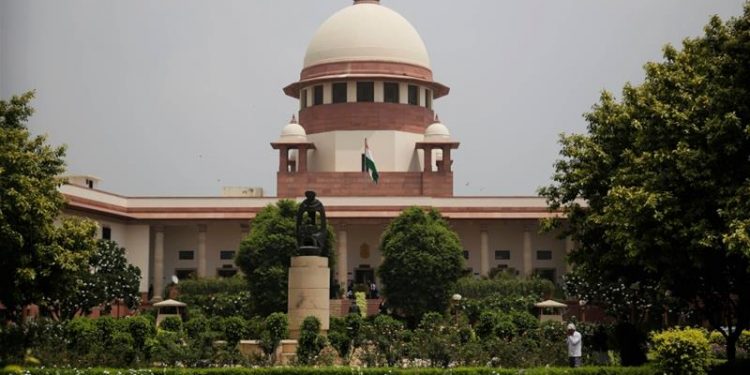New Delhi: Ram Lalla Virajman, a deity, and his Janmasthan, is a party in Ayodhya dispute, which weaves religious, political and historical issues into a social-religious debate, which is currently in progress in the Supreme Court.
According to the Hindu law, a deity is considered a minor and it is a juridical person subject to law. A deity can sue and it can also be sued in the court of law. Ram Lalla Virajman is a deity and his Janmasthan, a birthplace, is not confined to the spot.
According to the law, the deity can be equated with a legal person, who has rights and duties. A deity can own and dispose of property, can receive gifts, and it can sue and be sued in its name. Idols have been recognised to be juridical persons in Hindu law, which personifies the deity as a legal person.
The Constitution bench comprising fives judges – Chief Justice Ranjan Gogoi, Justice SA Bobde, Justice DY Chandrachud, Justice Ashok Bhushan and Justice SA Nazeer.
Senior advocate K Prasaran (93), is the counsel for Ram Lalla Virajman in the matter.
During the hearing in the past, three judges have queried on several aspects of Hindu faith and its association with the law. The most important aspect in this was argued Friday.
Justice Bhushan had queried Parasaran that one of the plaintiffs in the suit was Janmasthan, the birthplace. So, how is it possible to designate a place as a person subject to law, and what about things other than idols, how do they fall into a category having legal rights?
Parasaran cited the Rig Veda where the Sun is considered a deity, though it does not have an idol, and being a deity, it is a person subject to law. Justice Chandrachud asked the senior counsel if a source of worship can be considered a person subject to law.
There are arguments over idols and their divine nature, that is, the source of worship can be a source central to devotion. And, on this basis, one of the judges queried: “Could the place, which is connected to the origin, be considered a person subject to law?”
The judges also queried if any descendant of Lord Ram was still in Ayodhya, while Parasaran was arguing to establish that deity and birthplace were legal entities, as a result they are capable of holding properties and can also institute law suits under the Hindu Law.
Parasaran argued that an idol is not a necessity in Hinduism, as Hindus do not worship gods in any definite form, instead they believe in divinity having no form (nirakar). He referred to the Kedarnath temple, which has no idol or deity. Therefore, idol is not mandatory to define a temple, which is a legal entity, argued Parasaran, stating that Hindus have worshiped Lord Ram since time immemorial, even before the idols were placed and a temple was built around it.
He said faith is evidence, therefore, birthplace can be equated as a person subject to law.
The law suit, filed by the deity in Ayodhya case, has also included the birthplace as a co-petitioner, and together it has sought claim over the 2.77 acre of the disputed site, where the Babri Masjid was razed in December 1992.






































